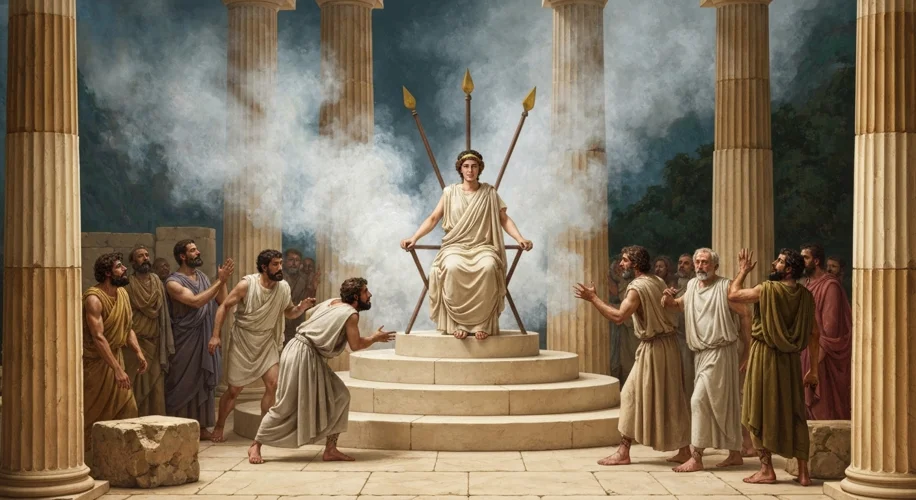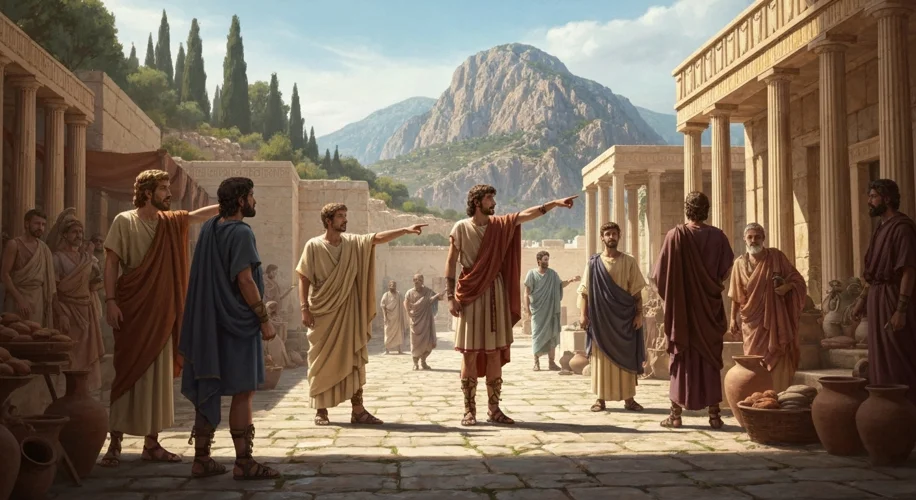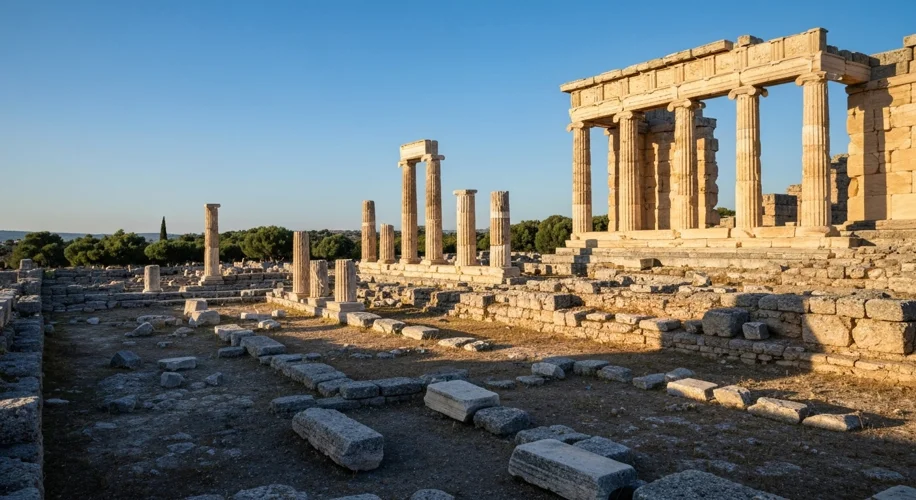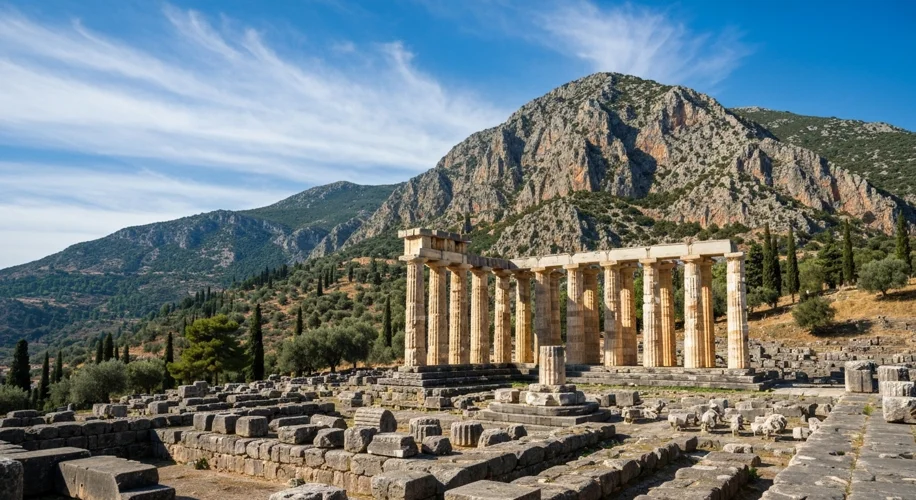Now, imagine: ancient Greece, a land steeped in myth and mortal ambition. Perched on the slopes of Mount Parnassus, shrouded in mist and reverence, lay Delphi. It wasn’t just a sanctuary; it was the navel of the world, the earthly home of Apollo, god of prophecy, music, and light. And at its heart, a woman whose words could shape empires, a priestess known only as the Pythia.
The air at Delphi was thick with the scent of laurel leaves and the murmur of supplication. Pilgrims, from humble farmers seeking a good harvest to kings contemplating war, journeyed for weeks, even months, to stand before the Oracle. They sought not just predictions, but divine guidance, a peek into the intentions of the gods themselves. This was a place where the earthly and the divine converged, where fate could be deciphered, or at least, so it was believed.
Historically, Delphi rose to prominence around the 8th century BCE, becoming a panhellenic sanctuary, a neutral ground where Greek city-states, often at war with each other, could meet. Its religious authority was immense, built upon the myth of Apollo slaying the serpent Python that guarded the site. The sanctuary grew wealthy from the countless votive offerings – gold, silver, bronze statues, tripods – gifted by grateful supplicants and aspiring rulers. This wealth further cemented Delphi’s political influence, allowing it to mediate disputes and even dictate terms of peace.
The key actors in this ancient drama were, of course, the supplicants and the Pythia. Kings like Croesus of Lydia, renowned for his immense wealth, famously consulted the Oracle before launching an ill-fated war against Persia. His question, “Should I march against the Persians?” received the cryptic reply, “If you cross the Halys River, you will destroy a great empire.” Croesus, blinded by confidence, believed the prophecy favored him, only to discover his empire was the one destroyed.

The Pythia herself was chosen from the local women, often elderly, who lived a life of chastity and ritual purification. She would enter a trance, said to be induced by vapors rising from a chasm in the earth (though modern geological studies debate this), chew laurel leaves, and drink from the sacred waters of the Castalian Spring. Seated on a tripod, a three-legged stool, within the adyton (inner sanctuary) of Apollo’s temple, she would utter prophecies in a seemingly frenzied state. These utterances were then interpreted by the priests of Apollo, carefully framing them to maintain the Oracle’s mystique and authority. It was this layer of priestly interpretation that allowed for the ambiguous nature of many prophecies, ensuring they could be understood in multiple ways, often after the fact, to appear correct.
The event itself, the consultation of the Oracle, was a carefully orchestrated ritual. The supplicant would approach the temple, offer a sacrifice – typically a goat that was sprinkled with cold water. If the goat shuddered, it was seen as a sign that Apollo was willing to give a prophecy. Then, the waiting, the anxious anticipation, before the Pythia’s pronouncements, carried back by the priests.

The consequences of Delphi’s prophecies were far-reaching. They influenced decisions on colonization, alliances, and even the formation of religious cults. The Oracle’s pronouncements could legitimize rulers, incite wars, or advise caution. Its pronouncements were considered divine law, and to defy them was to court disaster. However, the Oracle also played a role in maintaining a degree of unity among the disparate Greek city-states, providing a common religious and cultural focal point.
Analyzing Delphi’s power reveals a complex interplay of religious belief, political maneuvering, and psychological manipulation. The belief in divine intervention was deeply ingrained in Greek society, making the Oracle a potent force. The priests, by controlling the interpretation of the Pythia’s words, wielded immense influence. They ensured that Delphi’s pronouncements, however ambiguous, often served the broader interests of the sanctuary and its patrons, acting as a sophisticated political tool. The Oracle of Delphi wasn’t just a voice from the gods; it was a carefully managed institution that profoundly shaped the course of ancient Greek history, a testament to the enduring power of faith, mystery, and strategic ambiguity.


